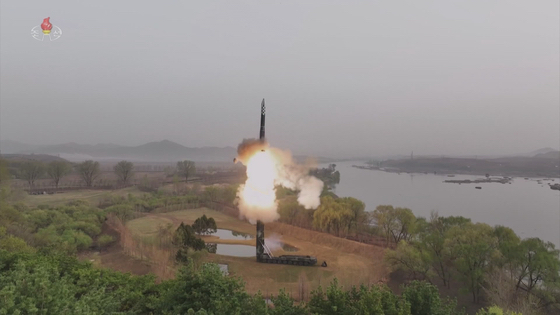Isolated from the international community and in urgent need of weapons and ammunition to continue its fight in Ukraine, Russia has chosen to double down on its alliance with North Korea.
Although Moscow and Pyongyang have been allies for decades, recent developments point to deepening military cooperation, which may prolong the war in Ukraine and increase provocations on the Korean peninsula.
Russia reaffirmed its intentions on October 26, when the Kremlin pledged to “continue to develop close relations in all areas” with Pyongyang. Similarly, North Korean Foreign Minister Choe Son Hui warned on October 28 that North Korea’s relations with Russia will act as a “powerful strategic” element if security in the region is endangered as a result of US-led trilateral military alliance with South Korea and Japan.
The deepening of the North Korea–Russia alliance took off in July of this year when North Korean leader Kim Jong Un welcomed a Russian delegation to Pyongyang, headed by Russian Defence Minister Sergei Shoigu, to mark celebrations of the 70th anniversary of the Korean War Armistice Agreement.
The visit marked the first time North Korea had welcomed a foreign delegation since the start of the Covid-19 pandemic. Shoigu reportedly proposed trilateral naval exercises involving China and North Korea – a move that highlights just how far Moscow is willing to go to deepen cooperation with Pyongyang.
Although North Korea has yet to commit to such joint drills, Kim Jong Un expressed his interest in deepening ties with Moscow in a highly public manner by making a personal visit to Russia on September 12. The timing of the trip was bold, given recent moves by the United States to strengthen trilateral deterrence efforts against the North with South Korea and Japan.
The United States also has been accusing North Korea of supplying arms to Russia for its war in Ukraine and threatened serious consequences if Kim strikes an arms deal with Russian President Vladimir Putin. But the North Korean and Russian leaders seem undeterred.
Putin expressed his intention to help North Korea build satellites and develop its space program. He also aims to discuss further cooperation on a broad range of topics with Kim Jong Un. Although no official agreement was made public, the two leaders likely concluded a win-win deal.
The fruits of the summit seem to be materializing already. An October report indicated “a dramatic and unprecedented level of freight railcar traffic” at North Korea’s Tumangang Rail Facility on the North Korea-Russia border. According to the report, “the dramatic increase in rail traffic likely indicates North Korea’s supply of arms and munitions to Russia.”

In exchange for the weapons, Russia may offer advanced military technology to help North Korea develop and expand its military capabilities.
For example, technology for the refinement of solid-fuel missiles and nuclear-powered submarines could be included in a list of North Korean requests. Ordinary North Koreans are also hoping to receive food aid from Russia.
Besides the material goods Kim may receive from Putin, the North Korean leader’s visit to Russia also served to show the world that the hermit kingdom is not as isolated as many may think. North Korea is part of its own trilateral bloc including Russia and China in opposition to the US–South Korea–Japan trilateral alliance.
The deepening ties with Moscow also serve Pyongyang’s interests in reducing its overwhelming dependence on China for aid and trade.
China is in a tricky position as it seeks to maintain North Korea as a buffer state to counter the United States while also wanting to maintain stability on the Korean peninsula and prevent the escalation of tensions. To this end, North Korea’s denuclearization would also be in Beijing’s interests as, arguably, it would call into question the need for US troops to remain in South Korea.
China faces a challenging balancing act. Russia providing North Korea with advanced military technologies would result in a more dangerous weapons program. This would likely lead to greater tensions close to China’s border. But North Korean support for Russia in Ukraine could prevent Moscow from suffering utter defeat, which would serve China’s interests by containing US power.
Given China’s strong influence, North Korea and Russia are unlikely to engage in actions that would directly hurt Chinese interests. Both North Korea and Russia will likely maintain close communication with China over the course of their deepening bilateral ties. Days after Kim left Russia, Putin hosted China’s top diplomat Wang Yi.
Putin also visited China on October 17. The news coincides with the Kremlin’s call for closer policy coordination between Moscow and Beijing to counter Western aims at the”‘double containment of Russia and China.”
With Russia, China and North Korea united against a US-led world order, Cold War-era blocs are becoming increasingly solidified. The revival of these blocs is raising tensions across continents from Europe to Asia.
Gabriela Bernal is a PhD candidate at the University of North Korean Studies, Seoul.
This article was originally published by East Asia Forum. It is republished under a Creative Commons license.

